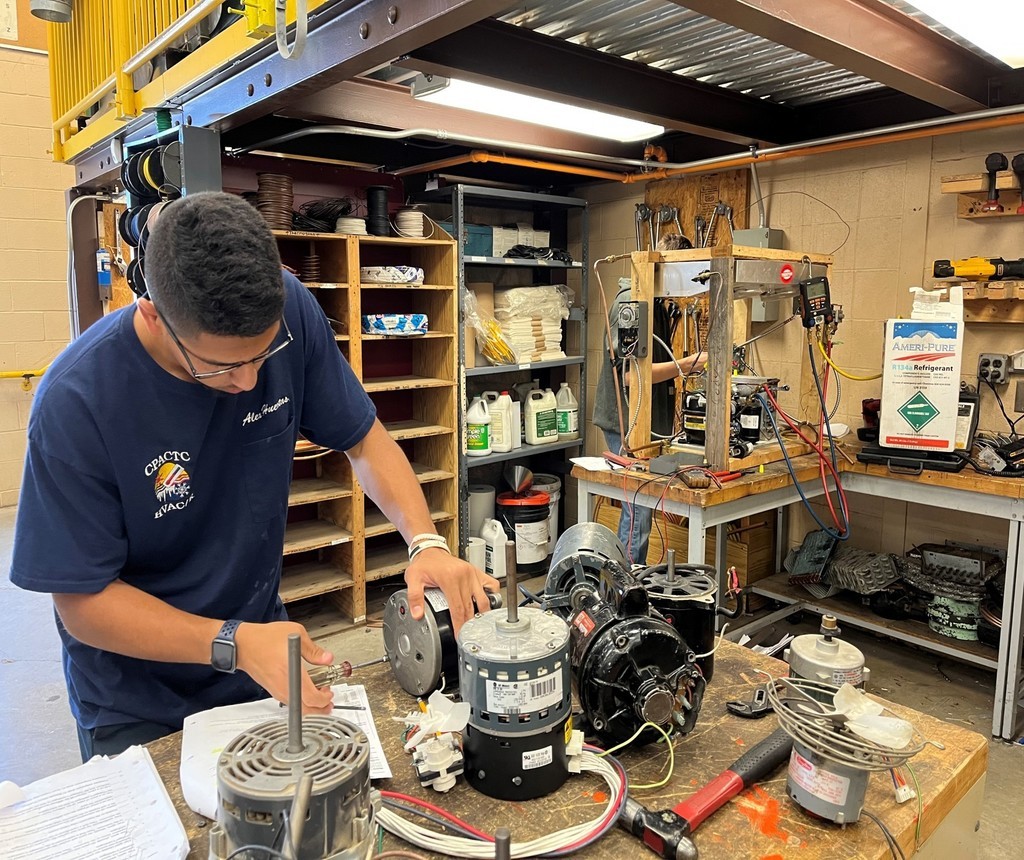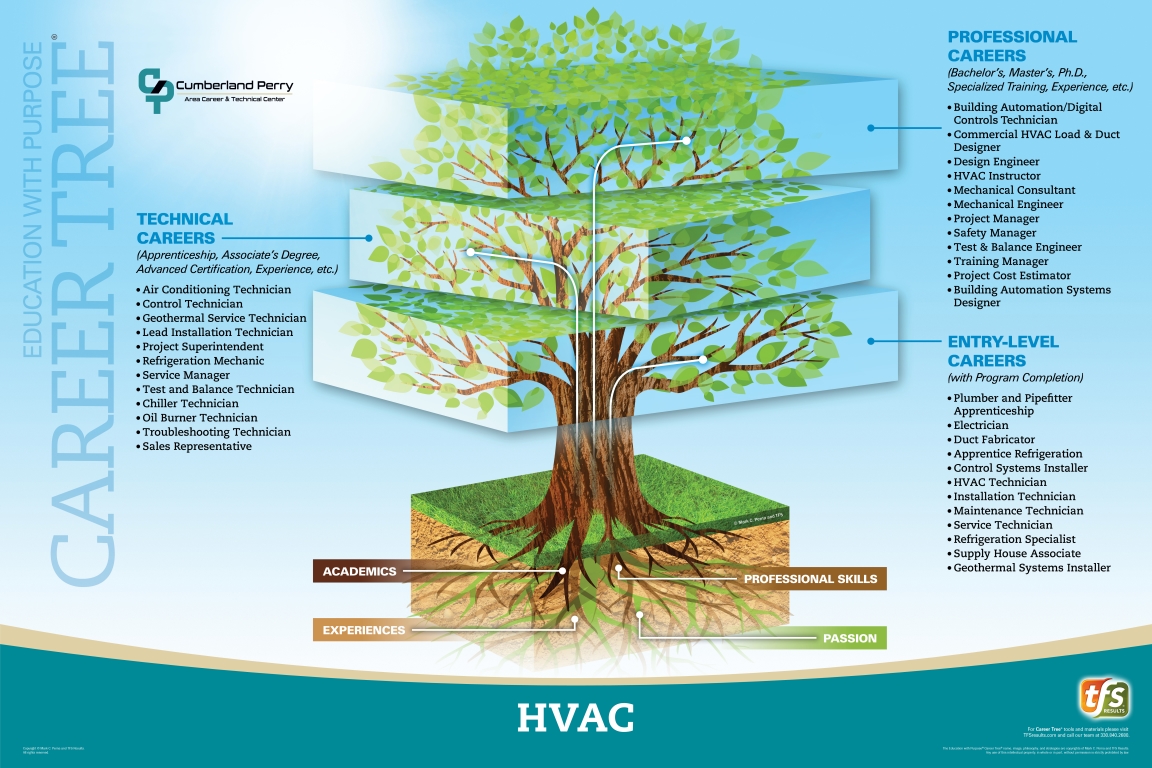HVAC/R
What is HVAC/R?
The Heating, Ventilation and Air Conditioning (HVAC/R) program provides the fundamentals of installation, repair, and maintenance of equipment and accessory parts used for heating, air conditioning, and cooling systems. Students learn basic electricity as it applies to the electrical power source and activities used in air conditioning, heating, and refrigeration units. Various equipment and training simulators are used to teach basic refrigeration in chilling and freezing systems. They will learn to solder and braze while developing skills required for the installation, repair, and maintenance of air conditioning, heating, and refrigeration units. Instruction includes: connecting ducts, refrigerant lines, and electrical hookups to power sources; the removal and/or replacement of parts by using torches, electrical meters, testing equipment, gauges, and hand tools; diagnosing unit breakdowns; disassembling and reassembling systems; making adjustments to ensure efficient operations; and reading basic blueprints and writing diagrams. The program also covers many of the basic skills needed in the plumbing trade, providing those students interested an opportunity to pursue a career in plumbing.
Thank you to our Program Sponsor
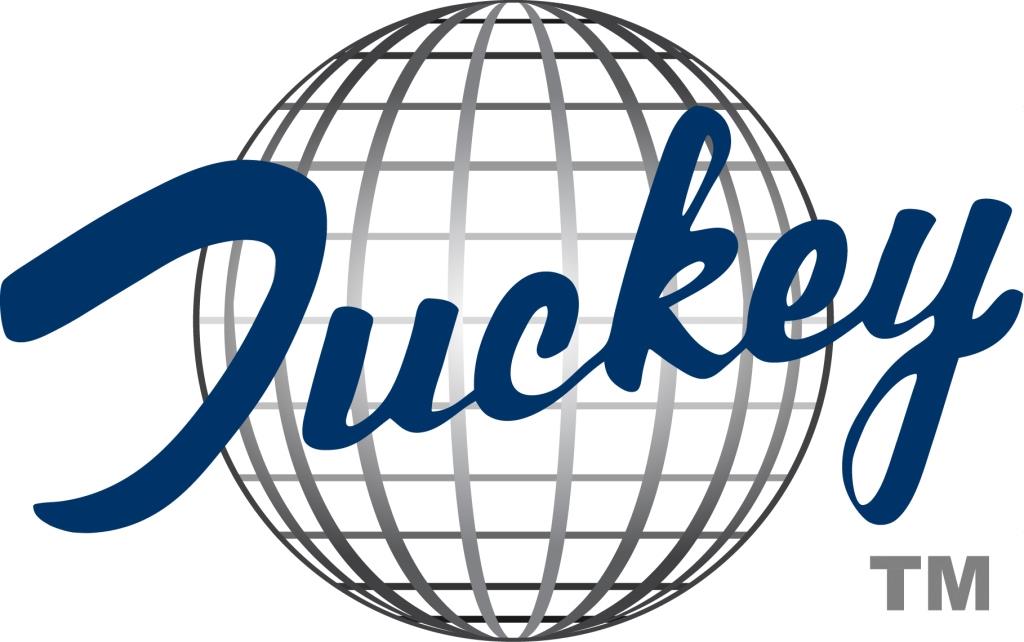
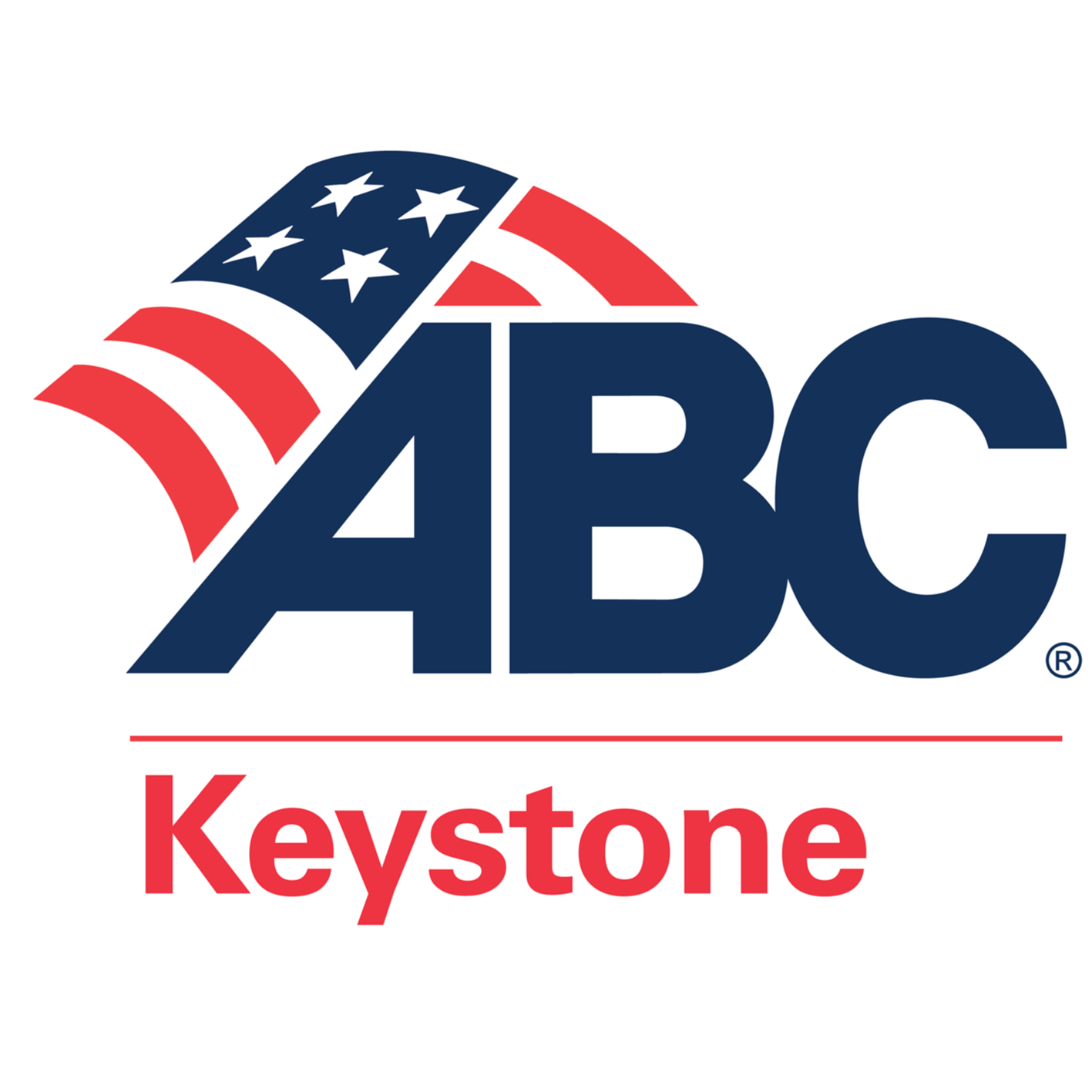
Program Accredited by
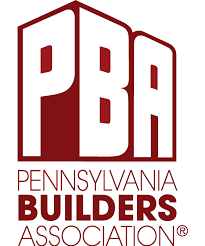
Is it for You?
HVAC/R mechanics are in great demand, providing many opportunities for rewarding careers. Heating and cooling mechanics work in a variety of places and situations--on ground floors, rooftops, in customers' homes, or in office buildings. They usually are required to lift heavy objects, as well as stoop or crouch, when making repairs and installations. Students wishing to enter this field should be capable of working both independently or in groups; like working with technology; and be adaptable to a variety of situations. Some hazards of the trade include: burns, electrical shocks, falls, exposure to refrigerants, and strains from lifting heavy objects. Heating and cooling mechanics usually work forty hours a week, and overtime is common during busy seasons. Mechanics who work on both heating and air conditioning units have steadier work than those who specialize in only one area. Additionally, the following skills are essential to successful employment in this field:
Physical stamina and coordination.
Good eyesight, either naturally or with correction.
Average mathematical ability.
The ability to use logical step-by-step procedures to complete tasks.
Good manipulative skills.
Good verbal skills.
Good reading skills.
Be able to measure and read a ruler.
Clean driving record.
Program Objectives
| Level 1
POS TASKS:
|
Level 2 Certification: OSHA 10 Construction
POS TASKS:
Employability Skills Training | Level 3 Certifications: EPA 608 Universal, R410a, Trac-Pipe, Gas-Tite CHS: HVAC 100 (EPA); HVAC 101 (Basic Electricity); HVAC 103 (Fundamentals of A/C I); HVAC 109 (Heating Systems)
POS TASKS:
OPTION: Cooperative Education |
What's Next?
Potential Career Pathways
* Salaries listed are PA state averages taken from www.onetonline.com and are accurate as of 2020.
Plumbers ($52,680)
Helpers of Pipelayers, Plumbers, Pipefitters, and Steamfitters ($30,940)
Energy Engineers ($99,040)
Geothermal Technicians (39,830)
Heating & Air Conditioning Mechanics & Installers ($51,880)
...and many more
Post-Secondary Studies
*Some employment options may require additional study.
HACC: Heating, Ventilation, and Air Conditioning
Penn College: Heating, Ventilation, and Air Conditioning Design Technology, Plumbing
Thaddeus Stevens: Heating, Ventilation, and Air Conditioning, Plumbing Technology

